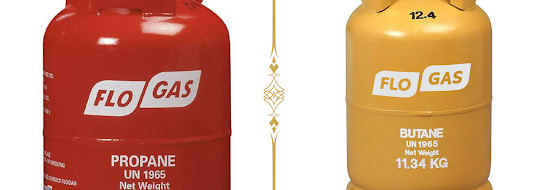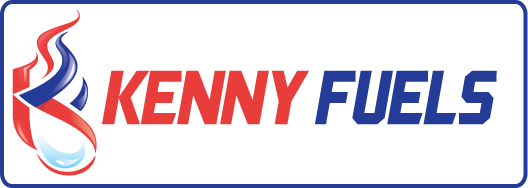What is the difference between butane and propane gas?
Introduction:
Gas fuels play an important role in our life from powering household
appliances to fueling industrial processes.
Two commonly used gases are Propane and Butane. While they both may
seem as similar at first glance, but there are some differences.
And to know what gas is appropriate for a specific application, we
will delve into the characteristics, properties, and applications of butane gas
cylinders and propane gas.
What is
Propane?
Propane gas comes from natural gas processing and oil refining. It can
be used for domestic as well as commercial purposes. Propane is more volatile
as it has a lower boiling point. In fact, it is really low, -42 degree Celsius,
and doesn't get affected by the cold climate in the UK making it ideal for
outdoor purposes.
It is usually stored in propane gas
cylinders or gas bottles, depending on your storage solutions and usage
requirements.
What is
Butane Gas?
Butane is highly flammable, colorless, odorless, and easily liquified
gas. But it has a high boiling point of -2 degree Celsius, the reason why it's
better suited for indoor uses. Proper handling, storage, and ventilation are
essential when using butane gas
cylinders due to its flammable nature.
Similarities
between Propane and Butane Gas:
The two gases have some similarities
●
First and
foremost that both these gases are processed from natural gas or petroleum.
●
Second, Both
gases produce carbon dioxide, carbon monoxide, and soot when burnt.
●
Third, both
gases are used in heating stoves and fuel vehicles.
●
Fourth, Both
gases are hydrocarbons and belong to the alkane family.
Difference between Propane and Butane Gas:
While butane and propane share similarities, their differences are significant and must be considered for specific applications:
1. Energy Content and Heating Efficiency Comparison:
Propane has a higher energy content and produces more heat per unit
volume than butane, making it suitable for high-demand appliances and
industrial processes.
Due to its higher energy content, propane gas is more efficient used for industrial processes, and butane, with its lower energy content, is better suited for lower heat output.
2. Storage and Transportation Requirements:
Butane and propane have different storage and transportation considerations due to their physical properties. Butane gas cylinders are stored and transported as a liquid under higher pressure compared to propane.
3. Environmental Impact:
When burned, propane produces fewer carbon emissions and releases less greenhouse gases into the atmosphere. This characteristic makes propane a cleaner-burning fuel option. In contrast, butane combustion generates relatively higher carbon emissions, contributing to environmental pollution and potentially exacerbating climate change.
4. Cost and Availability:
The cost and availability of butane and propane can vary based on
geographic location, market conditions, and supply and demand factors.
Generally, propane tends to be more widely a available, and cost-effective
whereas butane, with its more limited applications, may be less readily
available in certain regions and can be relatively more expensive compared to
propane.
Final
Thoughts:
Understanding the differences between butane and propane
gas is essential for selecting the appropriate fuel for specific
applications.
Considerations such as energy content, heating efficiency, and common
applications, play crucial roles in determining the suitability of each gas.
By evaluating these factors, individuals and industries can make
informed decisions that optimize safety, efficiency, and overall performance.
Visit our website Kenny Fuels today for all your propane gas cylinders
and butane gas cylinder requirements. Our experienced team and exceptional
service ensure that you get the right fuel for your specific needs.



Comments
Post a Comment